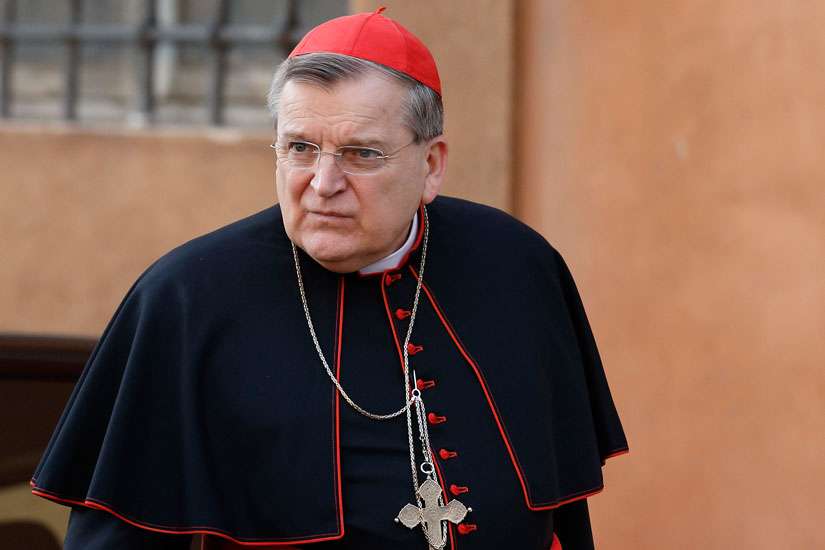The book offers an account of the Church in the modern world that is not new but is offered with great clarity. For Burke the core flaw in Western thinking over the past few centuries is that, “In modern thought, reality is limited to matter.” God is reduced to an idea, fantasy or opiate of the people. This metaphysical error sets society on a dangerous and problematic trajectory.
As Burke sees it, this is a massive problem for the Church because the Church is infected with this false view of reality. The Second Vatican Council is not the cause of such infection, but the spirit of 1968 shapes our responses to the council. This is marked by “an excessive anthropocentrism” which attempts to “adapt the faith to the culture.”
The consequence is “a widespread feeling that the whole life of the Church before the council was worthless, that it was necessary to create a new Church in order to live in a world that had changed.” The fruits of this famous “spirit of Vatican II” included the decline in vocations, decline in Mass attendance and an erroneous understanding of conscience modelled on modern approaches to ethics rather than traditional Christian ones.
This “naïve approach to culture” — which saw the genocide-stained 20th century as a far more ideal society than it was — allowed secularism to permeate the Church. Damage to the liturgy was underway with post-conciliar liturgical experimentation in which use of “banal and sentimental” modern music was a small but clear sign of the Church’s incorporation of secular disenchantment.
Such charges, of course, are not new. Often, however, they are typically expressed in forms either too technical or too angry to be engaged. Here Burke binds them to broader metaphysical trajectories, but also expresses himself without jargon. The result is noteworthy. It is clear, sincere and offers a perspective that can be heard by those who have experienced the Church differently from Burke.
Much of the book is this — the biography and thoughts of a faithful and influential son of the Church whose experience and ideas are worth reading, even by (perhaps especially by) those whose experience and thinking are very different.
I don’t want to give the impression this book is really just the amiable, tranquil thoughts of a conservative Churchman. It is incendiary.
The cover features the face of Burke, more gentle and avuncular than you may have seen him before. The introduction begins by speaking of the large portrait of Pope Francis that hangs in Burke’s office. It portrays Burke as authentically humble, faithful and loyal to his Holy Father. His is a genuine humility. In him “there is no dialectic between doctrine and pastoral care” — a charge often levied at Pope Francis. Burke’s word is “pastoral and doctrinal at the same time,” the introduction claims. Thus, his is a “real poverty, true simplicity.”
The portrait of Pope Francis is the backdrop against which Burke and his words are set by d’Alançon. Francis emerges again in the final section as Burke is asked questions that allow him to offer positions directly contrasting, at the very least in emphasis, with those of the Pope. For Burke, “Mercy is aimed at conversion, and the latter is always a conversion to the truth.” He goes on, in response to questioning from d’Alançon, to detail St. John Paul II’s prohibition on divorced and remarried Catholics being admitted to the Eucharist from Familiaris Consortio, stressing that it is “impossible” for any change in such teachings even if a Pope wanted to.
“The Holy Father,” Burke holds, should be “the first among Christians to be bound to obey Christ’s word.” The sections on the family and sexuality emerge as a direct retort to the expressed positions of Pope Francis, with Burke constantly stressing how pastoral perspectives are subordinate to doctrinal ones.
The effect is, quite simply, to betray the image of Burke the book strives initially to present — that of the faithful, humble servant. Instead, Burke’s positions are set in direct contrast with those of Francis. By the end, we don’t so much see Burke as humble servant, faithfully working away despite a silencing demotion to patron of the Order of Malta. Burke emerges as leader of the opposition.
This, of course, is nothing new for the Church. As a theology student, my liberal teachers decried Pope John Paul II but championed Cardinal Carlo Maria Martini as their own particular spiritual leader. It was then, as it is now, a wholly unhelpful approach. It fuels polarisation between liberals and conservatives that has dogged the Church for far too long.
A house divided against itself cannot stand. This book, for all its merits, strives to put one more crack into the foundation.
Hope for the World: To Unite All Things in Christ by Cardinal Raymond Burke with Guillaume D’Alancon (Ignatius Press, 123 pages, paperback, $20).
(Deane teaches theology at the Atlantic School of Theology in Halifax.)


